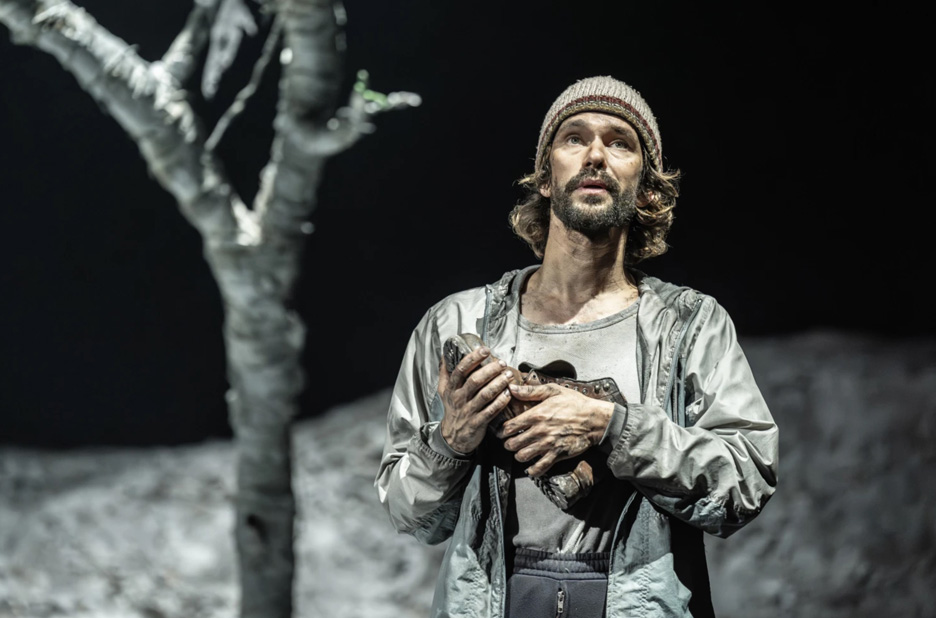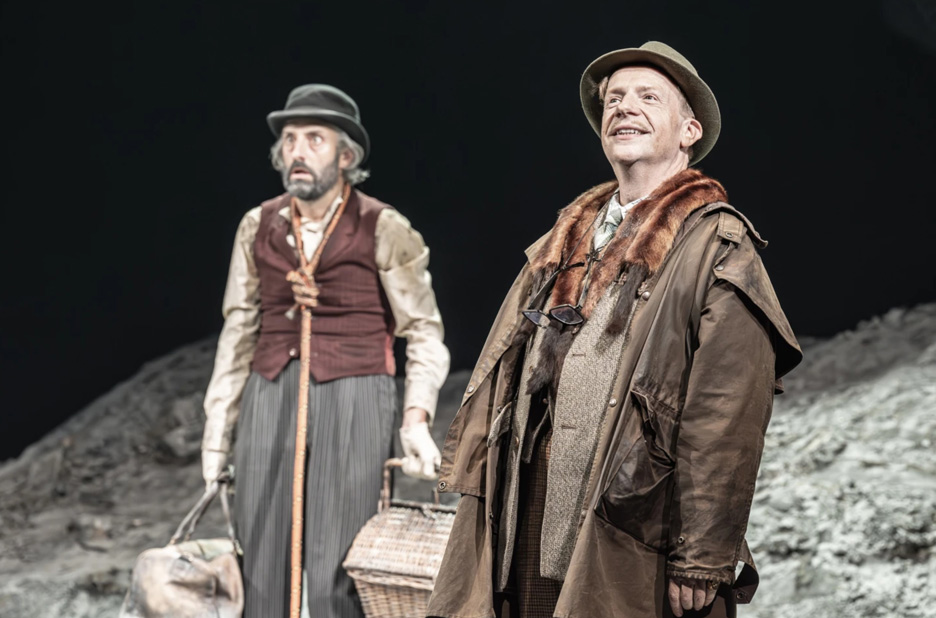Theatre
Waiting for Godot
Theatre Royal Haymarket, London
5/5
Timeless play as a vision of contemporary Britain
Waiting for Godot is a modern masterpiece that is easy to adapt to any era yet requires great skill from the director and company to really shape it into a satisfying form. Becket’s sparse and repetitive dialogue without much help except for the occasional prop or a bit of coarse physical humour must somehow keep the momentum for the audience to transcend the representation of the two boring days in the life of two tramps. The director James Macdonald with an excellent cast achieves this, giving the play a distinct feel and mood of contemporary Britain, albeit in keeping with Becket’s non-specific existentialist text. Becket’s vision of an endless present is almost a music score and this interpretation keeps the tension throughout, draws us into its world and gives us another different take on this malleable substance.


Premiered in 1953 in Paris, Waiting for Godot must have been incomprehensible to most audiences at the time. The great Peter Hall who had the honour to direct the first English staging in 1955 said that he found it very difficult to cast the play as the actors were bewildered by it. He remembers it well:
“I read the play and decided to do it. I won’t claim that I saw it as a turning point in 20th-century drama: that came later. And it certainly took a month of intensive rehearsal for me to realise that the play was a masterpiece. But from the very beginning, I thought it was blindingly original, turning the undramatic (waiting, doubt, perpetual uncertainty) into tense action. It was exquisitely constructed, with an almost musical command of form and thematic material. And it was very funny. It took the cross-talk tradition of music hall and made it into poetry.”
The last Godot I have seen was the rightly acclaimed production directed by Sean Mathias, with Patrick Stewart, Ian McKellen, Simon Callow and the late Ronald Pickup, also at the Theatre Royal Haymarket just over a decade ago. I was curious to see what this new production will bring. The stage was unsurprisingly sparse with a single dead tree on a bleak bank amid nothingness. Ben Whishaw and Lucian Msamati play Vladimir and Estragon as two homeless tramps of contemporary Britain, desperately trying to pass the time even if that means having to forgo meaning. I have never seen such a delicate Vladimir, a feat Ben Whishaw accomplishes with a great sense of measure and clarity, still credible as a misguided but gentle soul, contrasting with Estragon’s rough and ready presence and perception. Lucian Msamati’s earth-bound Estragon excels at representing a body trapped in space and time, complying and resisting in equal measure.

I was glad that music hall references were subdued, they don’t really mean much to contemporary audiences. Some reviewers have commented that there is more slapstick in this version, but I disagree. Slapstick is written in the play, and there was less of it not more here. Some reviews have said that the balance of comedy and tragedy is skewed towards comedy. Again I disagree, the polyvalence of Becket’s humour can surprise and here the balance of comedy and tragedy which is key to a successful staging was healthy and appropriate.
The role of Pozzo is probably the most rewarding to play in Waiting for Godot with its easy humour of aristocratic posturing, pointless activity and also Becket’s ingenious addition of neediness into the mix. Jonathan Slinger plays it with slippery precision. Without the charm that Simon Callow lent Pozzo ten years ago, the character seems even more obviously one of the ruling kind of our time. When he talks about the cosmic balance of the world in the first act, you know that it is skewed in his favour, but then in the second act as more is stripped away his human essence is revealed.

The defining feature of Lucky (Lackey) is that he is a slave. With Pozzo he forms the archetypal master and slave couple that we recognise everywhere around us. On the spectrum of unresponsiveness, imbecility and mental damage Tom Edden’s Lucky (Lackey) scores high. Even his landmark speech is not that of a fallen intellectual, but rather of a malfunctioning robot. His ‘thinking’ makes him seem a relic of a much older time, someone whose demise is far too obsolete to regret, his mistreatment and predicament only bringing very distant sadness. There is a parallel to be drawn with the downtrodden in our society whom we are becoming so tired of acknowledging as we deal with our own set of misfortunes. There is also a parallel to be had with the intellectuals today whom nobody listens to like the prescient Cassandras that people choose to ignore. When Estragon covers his ears and starts shouting ‘lalala’, the question becomes whether Lucky’s babbling is irrelevant or whether we just can’t take it anymore, whether we hear as garbage what is actually deeply meaningful and important.
The awaited Godot becomes extraneous except as a framing device. A desired proof of existence and purpose that will never come, he is nevertheless needed even in his absence and expected with hope. It is said that Waiting for Godot gives us a mirror of our mental landscape and indeed every time I see it I notice something different, based on the interplay of the interpretation and my own state of mind. As such it does exactly and perfectly what a good play should do. And I just can’t wait to see the next production.
